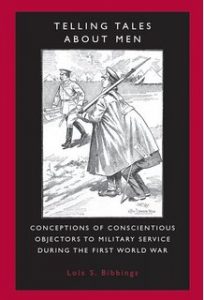By Prof Lois Bibbings, Professor of Law, Gender and History (University of Bristol Law School).*
 A hundred years ago general military conscription was introduced into Britain. The Military Service Acts of 1916 meant that men aged between 18 and 41 were deemed to have enlisted and decisions as to what happened to them were now in the hands of the state. However, in a controversial and seemingly contradictory move, the Act allowed men to be exempted from military service on the grounds that they had a conscientious objection to the undertaking of combatant service. These conscientious objectors (COs) deserve to be commemorated – and that is precisely what a series of events around the country are seeking to do.
A hundred years ago general military conscription was introduced into Britain. The Military Service Acts of 1916 meant that men aged between 18 and 41 were deemed to have enlisted and decisions as to what happened to them were now in the hands of the state. However, in a controversial and seemingly contradictory move, the Act allowed men to be exempted from military service on the grounds that they had a conscientious objection to the undertaking of combatant service. These conscientious objectors (COs) deserve to be commemorated – and that is precisely what a series of events around the country are seeking to do.
Although no exact figures exist, Cyril Pearce, the brains behind the marvellous Pearce Register of British World War One Conscientious Objectors, estimates that there were 20,000 COs – a very small number as compared to the around 5 million men who joined the military, most of whom were conscripts. Objectors were a diverse group. Their widely varying perspectives on the Act and their consciences led them to take very different courses. What is clear though is that they displayed remarkable conviction and courage, both as individuals and collectively. (more…)


